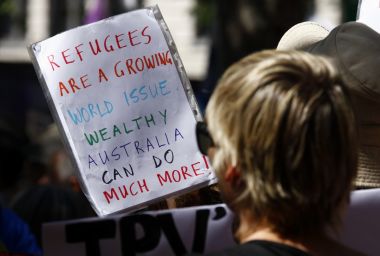Australia accused of 'smuggling' boat people back to Indonesia

The Australian navy has reportedly paid off the crew of a boat carrying asylum-seekers to return to Indonesian waters, and Australian Prime Minister Tony Abbott is not denying such reports.
The country's immigration and foreign officials have already maintained that the reports are false, but Abbott's refusal to deny the reports left Indonesia's foreign ministry "very concerned," according to a Business Insider report.
The Indonesian police said they detained the boat's crew members this week. They later told the police that an Australian navy ship intercepted them and gave each of them $3,900 to turn back.
"I saw the money with my own eyes," the local police chief said. "This is the first time I'd heard [of] Australian authorities making payments to boat crew."
The passengers echoed the police's story.
Indonesia's foreign ministry spokesperson expressed concern over the reports, adding that the authorities have started an investigation. "This is endangering life. They were in the middle of the sea, but were pushed back," foreign ministry spokesman Arrmanatha Nasir said.
If the Australian navy really paid off the boat crew, they could be accused of people smuggling, said a professor of International Law at the Australian National University.
"If a state such as Australia is making that payment, that would be seen as tantamount to people smuggling," said Prof. Don Rothwellm.
Abbott has mentioned that Australia is getting "very creative" in terms of preventing migrants from reaching the country.
"We have used a whole range of measures to stop the boats, because that's what the Australian people elected us to do," Abbott said.
The government will prevent the boats from entering the country "by hook or by crook," he stressed.
Abbott's hard-line policies introduced last year against immigrants have been criticised by the United Nations and other organisations.
The country has been accused by rights groups of violating international law "by returning possible refugees to the country where they were being persecuted."











